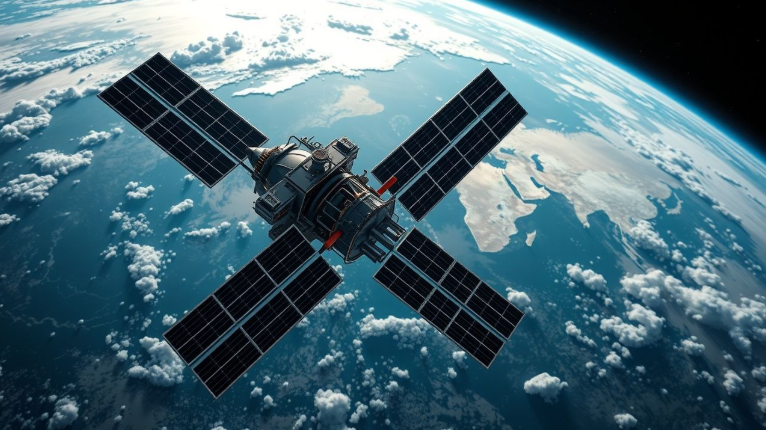India’s First AI-Powered Space Lab: A Revolution in Space Exploration
Innovations and Initiatives Innovations and InitiativesPosted by NewAdmin on 2025-01-31 09:22:13 |
Share: Facebook | Twitter | Whatsapp | Linkedin Visits: 23

India is set to achieve a historic milestone with the launch of its first artificial intelligence (AI) laboratory in space. Developed by Hyderabad-based space tech firm TakeMe2Space, the My Orbital Infrastructure - Technology Demonstrator (MOI-TD) is scheduled to launch aboard ISRO’s PSLV C60 rocket on December 4, 2024. This pioneering mission aims to transform how satellite data is processed, paving the way for more efficient and cost-effective space computing.
The MOI-TD platform is designed to address a fundamental challenge in satellite operations: the inefficiency of transmitting vast amounts of data to Earth. Traditional methods suffer from delays and data losses due to factors like cloud cover, which can render nearly 40% of satellite data unusable. By enabling real-time data processing in orbit, MOI-TD eliminates these barriers, reducing transmission costs and providing immediate insights for applications like environmental monitoring and disaster response.
Supported by the IN-SPACe Technical Centre in Ahmedabad, this initiative represents a significant leap in India’s space capabilities. The platform will allow researchers, students, and organizations to interact with the AI lab through OrbitLab, a web-based interface that facilitates the uploading of AI models. These models can be applied to various tasks, including tracking deforestation, monitoring greenhouse gas emissions, and improving Earth observation. Partnerships with institutions like a Malaysian university and Indian schools highlight the growing global interest in this technology.
Equipped with advanced AI accelerators, flexible solar cells, and sophisticated control systems, the MOI-TD satellite is designed to function as a space-based computing hub, much like cloud data centers on Earth. By processing massive datasets in orbit, it lays the foundation for future AI-driven space research and commercial applications, making space technology more accessible and affordable.
This mission is part of a broader collaboration between ISRO and the European Space Agency, underscoring India’s growing role in international space exploration. The PSLV-XL rocket, known for its enhanced payload capacity, will also carry the Proba-3 mission, a European initiative aimed at studying the Sun’s corona using advanced imaging techniques. This continued partnership strengthens scientific understanding of solar activity and its effects on Earth.
The launch of India’s first AI lab in space signals the beginning of a new era in space exploration. As AI technology evolves, its integration with space missions will unlock unprecedented possibilities, from autonomous spacecraft operations to deep-space exploration. By taking artificial intelligence beyond our planet, India is not just advancing space technology—it is redefining the future of scientific discovery and global collaboration in space research.
Search
Categories
Recent News
- Bihar's Top Cop Opens Doors to Public Grievances
- Hyderabad Gears Up for Presidential Visit: Traffic Diversions Announced
- Hyderabad Expressway Gridlock: Three-Car Pile-Up Causes Chaos
- Hyderabad Gears Up: Security Measures for Presidential Visit
- Hyderabad's Rs 23 Lakh Scam: Fake Trading App Dupes Investors
- Pinkathon Hyderabad: Empowering Women, One Step at a Time
- Hyderabad's Drug Supply Chain Unravelled
- Hyderabad's New Year's Eve: Safety Meets Celebration
Popular News
- Navigating IPO Market Dynamics Amid Volatility and Regulatory Changes
- Innovative Green Practices and Environmental Initiative
- Massive Worldwide Microsoft Outage Disrupts Multiple Sectors
- తెలుగుదేశం పార్టీ - పేదరికాన్ని నిర్మూలించడంలో వాగ్దానం
- Universities Embrace Remote Learning Technologies Amidst Ongoing Pandemic